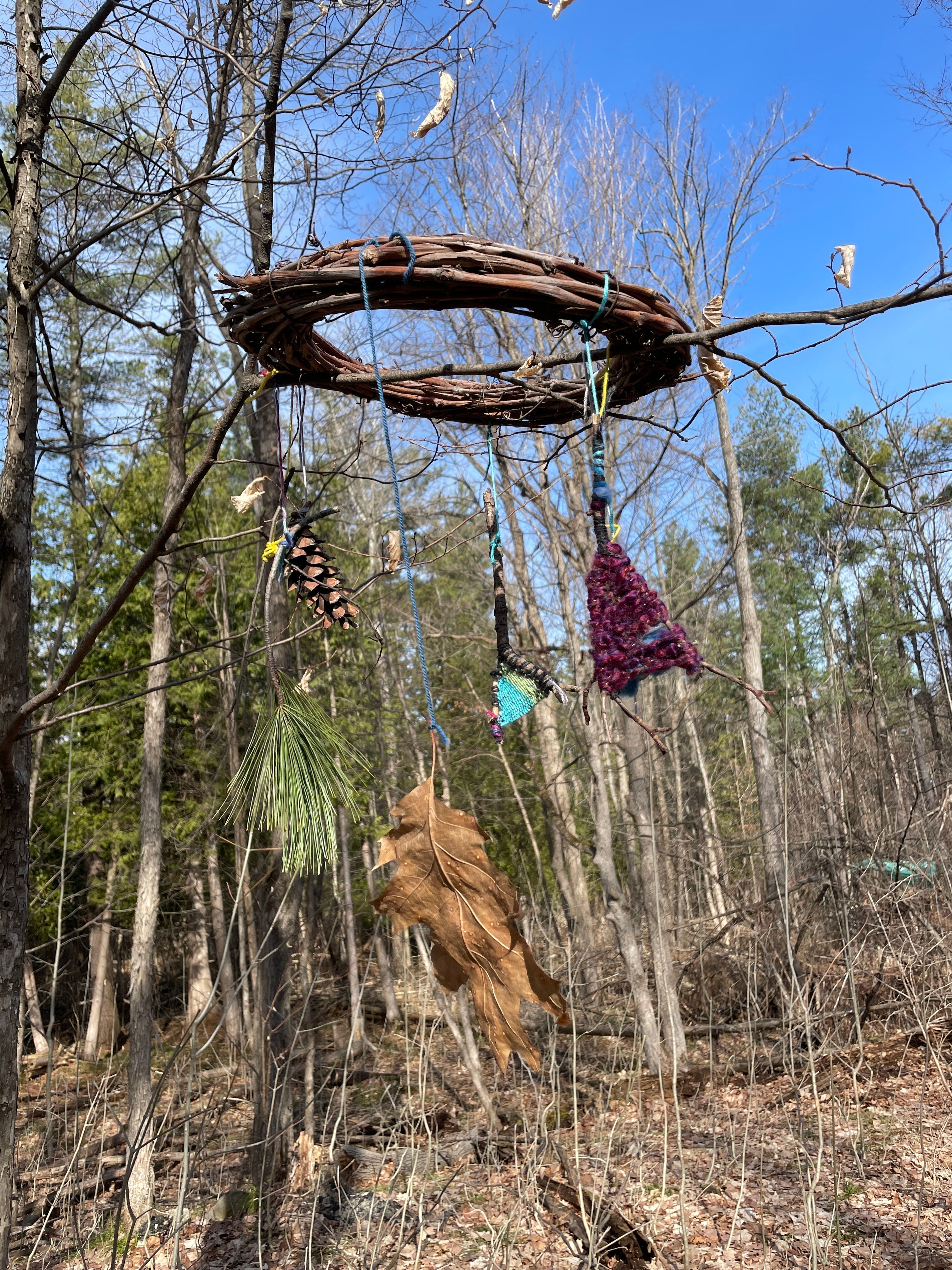
Awe, Resilience and Connection: How Time in Nature Nurtures in the Perinatal Period
Becoming a parent or growing a family with a new baby is a monumental life change. It can be joyful, but also exhausting, stressful, and lonely. One simple thing that can make a big difference? Spending time outdoors with your baby—especially in community with other parents.
Spending time outside can help new parents feel more connected to their babies, to nature, and to themselves. It can also build resilience to life’s challenges and create opportunities for awe—those deep, “wow” moments when you feel wonder and amazement, so often experienced in nature.

Why Nature Matters for Parents
Researchers Hall and colleagues (2023) found that being in nature helped new moms from various backgrounds have positive experiences. This research described the benefits that moms felt from being in nature, things like gaining new perspectives, feeling connected to others, and reducing daily stress.
The same research team explored how nature supports moms in three main ways: physically (like experiencing fresh air, movement and natural light), psychologically (like when participating in creative activities, experiencing mindfulness, and gaining self-confidence), and socially (sharing joy, fun and awe with others, feeling less alone, and feeling connected to nature).
While scientific evidence is still emerging, it’s thought that spending time in ‘enriched environments’ such as in nature, is healthy for our brains. Scientists posit that because moms and babies are closely connected, when a mother feels wonder or peace in nature, it helps her baby feel that way too.
Outdoor Play Builds Resilience
Outdoor play often involves gentle risk-taking—stepping off the paved path, trying something new, or getting a little muddy. For new parents, even bringing a baby outside in unpredictable weather can feel like a brave move.
In our perinatal outdoor play support group, we walked in the woods, drank tea by the fire, and made simple art with materials from nature. We listened to song birds and woodpeckers and even spotted a bald eagle overhead. We shared conversation, laughter and a deep appreciation for the beautiful setting. It might have felt hard at first – in the earliest session we navigated snow and ice on the path and acclimatized to the rustic cabin. But it was worth the effort – and this is resilience in action: trying something a little bit hard and realizing you can do it.
Outdoor Play Sparks Connection
When parents and babies play together outside, they connect in new ways. They notice the sounds of birds or the feel of the wind. They make eye contact, giggle, and explore together. Parents also connect with each other—sharing stories, worries, and laughter.
Creative play, like making art from natural materials or telling stories about the trees, adds another layer. According to expressive arts therapists Snyder and Atkins (2018), centring creativity is a powerful way to find wellness —especially when it’s done in a natural setting. You don’t have to be an artist. What matters is the experience of creating something together.
Final thoughts
Outdoor play is more than just fun—it’s a way to feel awe, build resilience, and create strong connections. For new parents, especially during the tender and sometimes tough early months, time in nature offers peace, joy, and healing—for both parent and child.
So go ahead: take a walk in the woods, build a tiny stick house, splash in puddles, or simply sit under a tree. Let nature be your playground—and your support system. To learn more about our Outdoor Play Perinatal Support Group check us out at: https://playfulmindset.ca/pages/outdoor-play-perinatal-support-group
Written By: Katie Rutledge-Taylor, Knowledge and Evidence Lead; Outdoor Play Support Facilitator & Art Therapist (in training)
Sources:
-
Hall K. et al. (2023). Mothers’ accounts of the impact of being in nature on postnatal wellbeing. BMC Women’s Health.
-
Hall K. et al. (2024). The applicability of nature-based interventions to support mothers’ postnatal wellbeing. Wellbeing, Space and Society.
-
Snyder, M. & Atkins, A. (2018). Nature-Based Expressive Arts Therapy. Jessica Kingsley Publishers.


0 comments